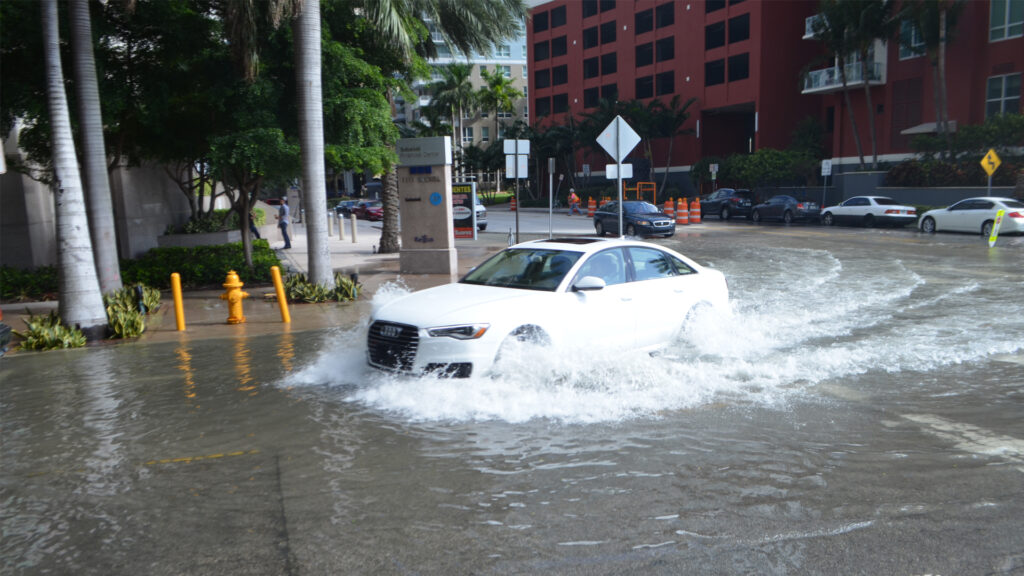By David A. Duckenfield and Michael D. Berkowitz
Miami has long made national headlines when it comes to hurricanes, king tides and the growing threats posed by climate change. But what the public might not yet fully realize is that South Florida is emerging as the nation’s center of innovation to address these challenges — the Silicon Valley of resilience, you could say.
Miami Climate Week, March 23-29, promises to showcase a robust coalition of government agencies, academic institutions, non-profit organizations and entrepreneur-innovators that are not only working to solve our own climate challenges but also positioning Miami as a leader at the forefront of the expanding market for resilience innovation and community-based solutions.
Only with a united front can we solve our mounting challenges.
To do this well, we need to both expand on global best practices and export home-grown progress in ways that open markets, scale innovation, engage at a community level and drive transformative change. Miami Climate Week offers the perfect stage for doing just that — creating meaningful events with conversations, connections and ideas that elevate the resilience movement in Miami and beyond, 365 days a year.
Importantly, Miami Climate Week will bring this knowledge down to earth — quite literally. The week will be home to more than 55 community activations, allowing residents to engage directly in activities that can make a tangible difference in the resilience, livability and sustainability of their communities.
Events will include tree planting initiatives, water conservation projects, educational opportunities and even programs on sustainable architecture and fashion — industries already embracing change in Miami.

By combining the strengths of two organizations — Miami Climate 365 and the University of Miami Climate Resilience Institute — we have created an impactful week that blends the academic and practitioner expertise of a conference with grassroots engagement across Miami-Dade. This will continue to build on the momentum of South Florida’s recent designation as a U.S. Department of Commerce Risk and Resilience Tech Hub — led by Miami-Dade and achieved with the Knight Foundation’s support.
The Miami Climate 365 year-round initiative focuses on strengthening community-driven efforts to address environmental challenges across the county. It fosters results-oriented collaboration, uniting stakeholders around a shared vision to tackle pressing local issues such as heat mitigation and flooding, while actively engaging residents in practical solutions.
Meanwhile, the Climate Resilience Institute connects UM innovation with the policymakers and practitioners who can apply it to make communities — starting with our own — more resilient to shocks and stresses. This will be on full display during the week’s two-day Resilience 365 Conference at the University of Miami.
Through this partnership, Miami Climate Week is not just another conference or environmental event — it is a movement. It is a moment for engagement, for every Miamian to step forward and take action, whether through attending thought-provoking discussions or getting their hands dirty in a local restoration project.
The urgency is clear. The days are getting hotter, sunny-day flooding is now a reality and no one has the luxury of sitting on the sidelines.
Through innovation and local engagement, neighborhood by neighborhood, we can make a positive difference in Miami-Dade.
And even more than that, we can export our learning — both in technological advancements and collective impact strategies — to other communities across the country and beyond, showing how collaboration can change the trajectory of a place threatened by extreme weather events.
So, the call to action is simple: Engage in this moment, wherever and whenever you can. Join the conversation, take part in community-based activations and be part of the solution.
The future of Miami — and of cities facing similar climate threats — depends on our ability to lead, innovate and act, starting now.
David A. Duckenfield is executive director of Miami Climate 365 and Michael D. Berkowitz is executive director of Climate Resilience Institute at the University of Miami. This opinion piece was originally published by the Miami Herald, which is a media partner of The Invading Sea. Banner photo: The Miami skyline (iStock image).
Sign up for The Invading Sea newsletter by visiting here. To support The Invading Sea, click here to make a donation. If you are interested in submitting an opinion piece to The Invading Sea, email Editor Nathan Crabbe at ncrabbe@fau.edu.



